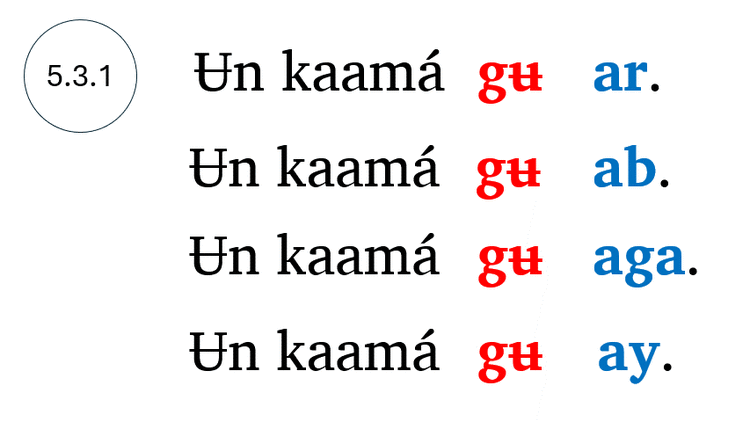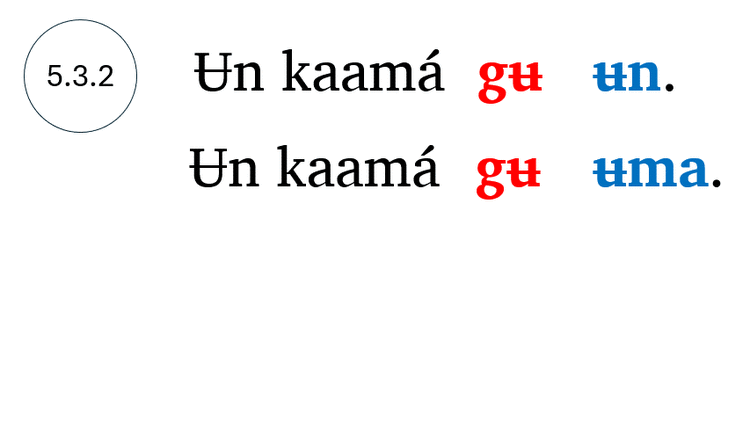5.1 Do not write gɨ́ mʉ́ gʉmʉ́ nɨ́ anɨ́ bɨ or abɨ together with any other words.


5.1.1 Write gɨ́ by itself.


5.1.2 Write mʉ́ by itself.


5.1.3 Write gʉmʉ́ by itself.


5.1.4 Write nɨ́ by itself.


5.1.5 Write anɨ́ by itself.


5.1.6 Write bɨ by itself.


5.1.7 Write abɨ by itself.


5.2 Always write a together with words it modifies. When it is the name of a person, or place, or something else (proper name), separate the a from its the noun with a hyphen (–).
5.3 When gʉ meets with other words, sometimes it is written together with them.


5.3.1 When gʉ meets with pronouns that begin with the vowel a (aga, ay, ar, ab, an), write them together.


5.3.2 When gʉ meets with pronouns that start with the vowel ʉ (ʉn and ʉma), write them together and take away one of the ʉ vowels.


5.3.3 When gʉ meets with other words, write them separately.
5.4 When gá meets with other words, sometimes they are written together.


5.4.1 When gá meets with a pronoun that begins with a vowel (aga, ay, ar, ab, ʉma, ʉn, an), write them together and take away the á , giving its tone marking to the vowels that remain.


5.4.2 When gá meets with other words, write them separately.


5.4.3 If gá introduces a dependant clause, do not write it together with a following pronoun. Write it by itself. (Dependant clauses are shown with brackets in the example).